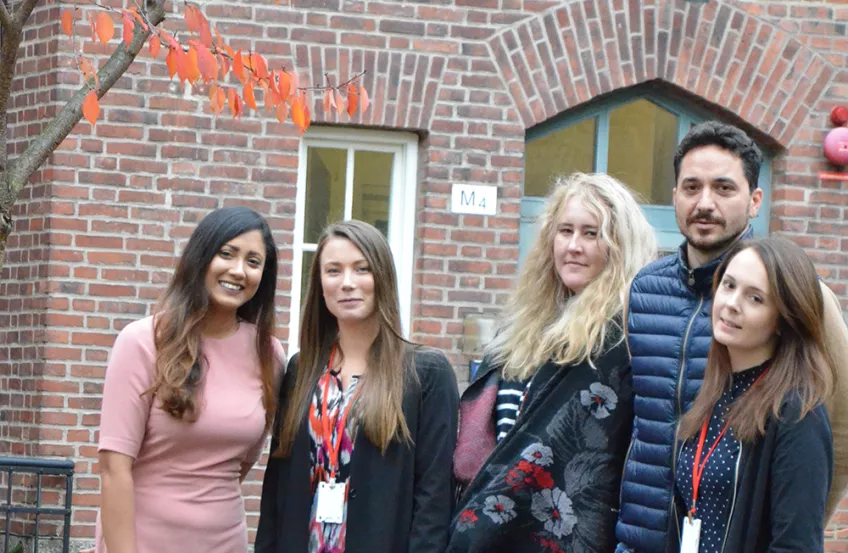The Master's Programme in Sociology of Law, SASOL, is a multidisciplinary programme that is given here at the Sociology of Law Department in Lund. During the third semester (out of four) of the programme students have the opportunity to choose an internship course of 30 higher education credits (read more on the page Internship)
This spring the Master's students were informed about the opportunity to choose internship at the Sociology of Law Department in a research project dealing with labour law versus private law or in the research network Child Rights Institute, CRi @ LU.
Hannah Bowring is doing her internship in Eva Schömer's research project, a project that deals with the employee's situation when labour law and social law meet in the home and how this meeting affects the personal assistant and home care worker. Hannah's task is to look at the situation of the employee in home service.
– There is a vulnerability for the employee as laws and regulations in the field are inadequate. When you come into someone's home, when working with home service, you come into the person’s private sphere. But the home is at the same time the employee's workplace, and so a public sphere, and this leads to a clash between the two spheres, says Hannah Bowring.
The four master students Andrea Flack, Madeleine Collin, Sokol Xhaxho and Tania Lutfunessa chose Child Rights Institute for their internship, and were already in May able to participate in meeting representatives from 16 countries in Africa, Asia and Latin America that were here in Lund on a one-week workshop on education for children's rights.
The workshop was part of an International Training Programme on child rights called “Classroom and School Management”, which will now emerge into an online global platform aiming to strengthen international collaboration and research focusing on children’s rights and also consolidate knowledge and disseminate the results of the programme.
This autumn the four internship students will have concrete tasks at different levels working on building this new online global platform within the Child Rights Institute.
What is the most exciting thing about the internship here at the department?
Tania Lutfunessa:
– Being here. We used to come as students, now we are employees, colleagues. It is also very positive that we are sharing a room, but still have our own space in the room. We get to share our thoughts and help each other.
Sokol Xhaxho:
– It is exciting that we are here together and that we have the opportunity to work for our independent topics for our thesis combined with the internship course, and also get something extra by being here.
Andrea Flack:
– It is the first time the course is held [because the programme is new] and it’s nice to be part of setting it up and moulding it for future students. I think it is expected of us to say our thoughts on how the internship course could develop for the future. For my individual study within the internship course, I want to combine my own interest in the subject of security with child rights. Security is also to be the focus of my master’s thesis and this course will prepare us well for that process.
Tania Lutfunessa:
– And a bonus is that we will have worked with our thesis for a year instead of just a semester. The first couple of weeks we have, within the internship course, done a literature review, looking at our specific topic for our thesis. Rustam [Rustamjon Urinboyev] has taught us to use some useful software for reviewing literature called Zotero, which will be very useful in the future.
Madeleine Collin:
–Yes, we feel like we have been given an extra method course for free within the internship course. You can never get enough method in your portfolio and it has helped us develop a more critical approach. The most exciting thing is the step from being a student and seeing all the people who work here in their offices to now considering yourself a colleague and being considered a colleague. Before it felt like a huge leap to think about yourself as a professional academic, but now it feels like we are also a part of this. We are being put to the test and we are considered competent.
